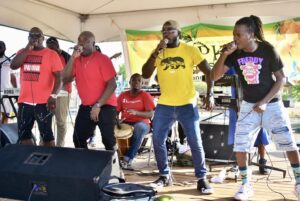Belize has recently become more receptive to same-sex relationships and the LGBTQ Rights in Belize; however, it’s important to remain discreet when publicly showing affection and upholding local customs and culture.
Caleb Orozco of the United Belize Advocacy Movement successfully challenged the constitutionality of Belize’s anti-sodomy laws in court in 2010. You can learn more about his and similar cases on our Resources page.
LGBTQ Rights in Belize: A Historical Overview
Belize’s Supreme Court issued an important ruling, striking down its anti-sodomy law and decriminalizing consensual same-sex sexual activity based on consent. With this move, Belize became the first former British colony in the Caribbean to repeal laws criminalizing sexuality or gender expression dating from colonialism.
The Supreme Court held that the law violated human dignity, privacy, freedom of expression, and equality before the law as it discriminated based on sexual orientation and went beyond what is permissible under the Constitution’s prohibition against such discrimination.
But despite Supreme Court decisions being implemented, LGBT individuals continued to experience discrimination. Men reported being denied work and credit while some public displays of affection between straight couples were frowned upon.
There was little data available about LGBTQI+ individuals, and the government did not differentiate their health, education, or other statistics based on sexual diversity or gender identity. Local experts working on these issues noted that this lack of demographic data hindered NGO efforts to address problems within the community such as poverty stemming from lack of employment opportunities.
Domestic violence and sexual exploitation remain serious problems in the country. Although the Constitution recognizes equality between genders, Indigenous women living in rural areas experience discrimination. They also tend to hold fewer management positions in private and state-owned companies than men. Unfortunately, the government did not fully implement its laws regarding domestic violence and sexual harassment and there have been reports of perpetrators going free with impunity for their crimes.
However, the lack of legal recognition of gender diversity hampered NGO efforts to advance gender equality. Although the Constitution allows individuals to choose their name and gender on official documents, the Public Ministry refused to issue ID cards reflecting those choices.
LGBTI advocates continue to face harassment and violence for their work on gender rights issues, including from members of parliament. An openly gay and HIV-positive member of Congress reported that other members yelled homophobic slurs at him when he spoke during congressional sessions, while a transgender woman who worked as a sex worker reported receiving death threats and receiving threats of extortion from fellow workers despite filing criminal complaints with the Public Ministry which were not taken seriously.
Advancing LGBTQ Rights in Belize: Triumphs
Belize is widely considered to be a welcoming environment for LGBTQI individuals to reside. Though some Belizeans might disagree with our community, most do not show overtly negative behavior or attitudes toward lesbian, gay, bisexual, and transgender people.
However, discrimination remains an issue in this self-identifying Christian nation. For instance, its constitution prohibits “prostitution or homosexual behavior” while criminalizing sex between male and female partners – making it hard for those engaging in these activities to receive legal protection from the state.
LGBTI rights in Belize experienced a major boost when the Supreme Court of Belize declared its sodomy law unconstitutional. Caleb Orozco from United Belize Advocacy Movement (UNIBAM) brought this suit against Section 53 of Belize’s Criminal Code which bans “carnal intercourse against nature”. Chief Justice Kenneth Benjamin found this law violates freedom of expression rights as well as gender equality rights – widely celebrated among civil rights advocates in Belize.
Orozco was represented in her case by U-Rap (United Nations Working Group on Indigenous Peoples) and Human Dignity Trust, among other entities, while lawyers Christopher Hamel-Smith and Westmin James from Cave Hill’s Faculty of Law also provided assistance. However, Prime Minister Dean Barrow quickly rejected calls from leaders of religious institutions asking him to appeal the ruling against her.
Alongside its Supreme Court’s ground breaking decision, Belize’s government has made strides towards improving rights for LGBTQI individuals as well. In 2013, they introduced a National Gender Policy with the intention of empowering all people – including LGBTQI individuals. Some religious denominations, however, argue that its wording could give rights to homosexuals.
While Belize’s progress is encouraging, it must be remembered that sex discrimination against LGBTQI people remains a global problem. Under international law it is illegal for anyone to be physically attacked because of their sexual orientation, and engaging in same-sex intimacy remains illegal in 76 countries.
Legal Landscape of Rights in Belize
Supreme Court of Belize upheld Caleb Orozco’s legal challenge to Section 53 of Belize’s Criminal Code which criminalized “carnal intercourse against nature.” Orozco is an activist and executive director for United Belize Advocacy Movement (UNIBAM). With this landmark decision from Belize’s highest court, international human rights standards will now be respected; decriminalization of private consensual same-sex sexual activity between adults of equal genders is key for their dignity and well-being as is decriminalisation by other nations.
Although Belize remains a religiously conservative and predominantly Roman Catholic country with many Belizeans opposed to homosexuality, this ruling marks an important step towards ending discrimination against LGBT people. Furthermore, this confirms that sexual orientation or gender identity discrimination is prohibited under Belizean law and this ruling enforces this notion further.
Given this development, we urge the Belizean government to take additional measures to protect LGBT individuals living within its borders. Such steps might include passing laws to prohibit discrimination in employment and education; creating anti-bullying programs and helplines; offering comprehensive age-appropriate sexuality education courses; as well as making sure housing policies do not discriminate on grounds of sexual orientation or gender identity.
At Belize Tourism Board, we urge LGBT travelers to respect the cultural context in which they’re visiting. Due to its small and rural setting as well as its relatively homophobic society, it is crucial that LGBT travelers remain discreet when out and about in public areas or situations. While Belize can be perceived as socially conservative and somewhat provincial, we found the people to be friendly and welcoming when we visited. We rarely experienced negative or discriminatory treatment and our experiences with the local LGBT community have been entirely positive. However, travelers should remain mindful of the nuances and restrictions of an unfamiliar culture when traveling abroad. We advise LGBT travelers who plan to visit Belize to establish power-of-attorney documents and wills before arriving there.
Activism & Advocacy: LGBTQ in Belize
Belize is widely seen as a socially conservative, provincial country in which homosexuality remains illegal and public displays of same-sex affection are considered shocking. But its government has made steps toward greater inclusivity by passing legislation protecting LGBT individuals from discrimination in employment, housing, education, and healthcare settings.
Violence against LGBT individuals remains a key problem, with police complacency leading to inadequate investigations and prosecution of many cases of targeted violence against these communities. Local experts note that due to a lack of government data collection on sexual orientation and gender identity, efforts by NGO organizations cannot reach individual needs within communities as effectively.
Interviewees noted that churches play an essential role in shaping community attitudes toward LGBT individuals. Many interviewees reported experiencing rejection from family and church communities due to their sexual orientation; these incidents often were couched in religious terms – for instance, one interviewee who sang with a church choir reported being rejected because he was considered too feminine and did not fit within its male-dominated structure.
However, Belize has recently made significant strides forward LGBT rights. In 2016, Belize became the first former British colony in the Caribbean to repeal their anti-sodomy law, criminalizing consensual same-sex sex between adults. This success can be credited to activist Caleb Orozco who founded the United Belize Advocacy Movement and successfully challenged it in court.
The Inter-American Commission on Human Rights (IACHR) applauded Belize’s Supreme Court for their historical ruling and called upon their government to continue making strides toward protecting LGBT human rights. Furthermore, ratifying international human rights instruments will serve to further advance the protections of LGBT persons within Belize.




